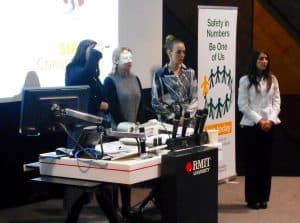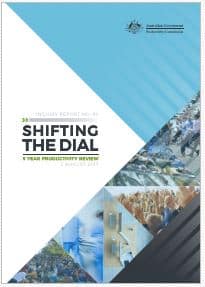 On 1 June 2015 Australia’s Radio National broadcast a discussion about the
On 1 June 2015 Australia’s Radio National broadcast a discussion about the
Category: business
The Safety Anarchist
 Professor Sidney Dekker has a new book out called “The Safety Anarchist –
Professor Sidney Dekker has a new book out called “The Safety Anarchist –
Relying on human expertise and innovation, reducing bureaucracy and compliance“. Last month Sidney spoke exclusively with SafetyAtWorkBlog about the issues of governance, risk assessment, the safety profession, bureaucracy, centralisation and the cost of compliance. The full conversation is available at the Safety At Work Talks podcasts and below.
Look to the source of workplace conflict, exploitation and injustice
 Occupational health and safety advocates are pushing for safety management and strategies to refocus on people by talking about “people-centric” approaches and recalibrating legislation to re-emphasise prevention. This push parallels society’s frustration with political strategies that favour big business, the under-investment in education and health care systems and companies that announce record profits at the same time as sacking staff. That frustration is becoming accepted by political parties that are starting to apply more people-centric policies or by countries and States that are appointing representatives from outside the mainstream political organisations.
Occupational health and safety advocates are pushing for safety management and strategies to refocus on people by talking about “people-centric” approaches and recalibrating legislation to re-emphasise prevention. This push parallels society’s frustration with political strategies that favour big business, the under-investment in education and health care systems and companies that announce record profits at the same time as sacking staff. That frustration is becoming accepted by political parties that are starting to apply more people-centric policies or by countries and States that are appointing representatives from outside the mainstream political organisations.
At a closing event for National Safe Work Month on 1 November 2017, WorkSafe Victoria’s CEO,
Can flexible work arrangements apply in the construction sector?
 On 30 October 2017, the Safety Institute of Australia and RMIT University held their annual OHS Construction Forum. This year’s theme was flexible working arrangements – a brave choice that did not really work but was indicative of safety in the construction industry generally.
On 30 October 2017, the Safety Institute of Australia and RMIT University held their annual OHS Construction Forum. This year’s theme was flexible working arrangements – a brave choice that did not really work but was indicative of safety in the construction industry generally.
Several speakers discussed well-being generally and how flexible working arrangements were critical to fostering an appropriate level of wellness. One, a labour lawyer, outlined the legislative obligations that companies have to those types of arrangements with reference to equal opportunity laws, industrial relations and anti-discrimination obligations – sadly the workplace safety laws and obligations were not mentioned. In all of the wellbeing-themed discussions, the application to the on site construction workers was rarely, if ever, mentioned.
Industry group expresses concerns about new safety Standard
 An odd media statement was released by the Australian Chamber of Commerce and Industry (ACCI) on 23 October 2017 regarding the new international occupational health and safety (OHS) management system Standard ISO45001. Several days later Standards Australia released a statement that supported and clarified ACCI’s position
An odd media statement was released by the Australian Chamber of Commerce and Industry (ACCI) on 23 October 2017 regarding the new international occupational health and safety (OHS) management system Standard ISO45001. Several days later Standards Australia released a statement that supported and clarified ACCI’s position
ACCI states that
“….the draft standard is still several months away from being finalised”.
Important little OHS steps in latest Productivity Commission report
 Australia’s Productivity Commission (PC) released a 5 year productivity review called “Shifting the Dial“. It is one of those large government reports from which lots of people draw lots of conclusions. Chapter 3 in this report addresses Future Skills and Work within which occupational health and safety (OHS) is mentioned in a useful and important context.
Australia’s Productivity Commission (PC) released a 5 year productivity review called “Shifting the Dial“. It is one of those large government reports from which lots of people draw lots of conclusions. Chapter 3 in this report addresses Future Skills and Work within which occupational health and safety (OHS) is mentioned in a useful and important context.
The PC acknowledges the changing types of work that have been written about copiously elsewhere with varying degrees of alarmism. The Commission contextualises this rate of “transformative” change as the latest in a continuum of change and recommends this policy approach in relation workplace safety:
The big accounting firms are due to shake up the OHS sector
 On 15 August 2017, the Australian Financial Review (AFR) ran an article (paywalled) that should have sent shivers up the spines of occupational health and safety (OHS) professionals throughout Australia. The article titled “Audit chief sound warning on big four rush to consulting work” in the hard copy newspaper discussed the future consulting strategies of the “big four – Deloitte, Ernst Young, KPMG and PricewaterhouseCoopers (PwC):
On 15 August 2017, the Australian Financial Review (AFR) ran an article (paywalled) that should have sent shivers up the spines of occupational health and safety (OHS) professionals throughout Australia. The article titled “Audit chief sound warning on big four rush to consulting work” in the hard copy newspaper discussed the future consulting strategies of the “big four – Deloitte, Ernst Young, KPMG and PricewaterhouseCoopers (PwC):
“The four firms are all aggressively chasing growth by moving into management and technology consulting work. They are also hedging their bets by branching out into other types of professional services ranging from law through to strategy work and even marketing advisory.”
